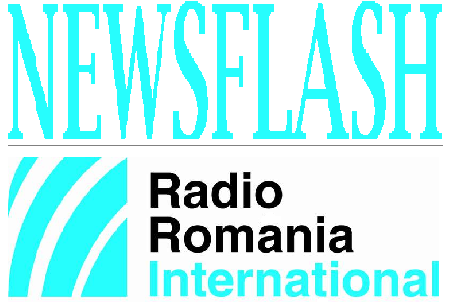December 25, 2013
The main stories in Romania today.

România Internațional, 25.12.2013, 13:32
Romanians celebrate Christmas alongside Christians all over the world. In his special address, the Patriarch of the Romanian Orthodox Church has urged people to preserve their faith and generosity. At the Vatican, Pope Francis said the outcast are the first to understand the Christian message and asked Catholics not to be afraid to believe. On Wednesday, the pontiff delivered his Urbi et Orbi blessing in more than 60 languages, including Romanian. In Romania, Christmas is celebrated through special services in churches and monasteries as well as old traditions, such as carolling, which includes ceremonial texts, dances and gestures. Carollers wish their hosts good health and a wealthy year and receive in exchange fruit, sweets and even money.
In his Christmas address, president Traian Basescu expressed hope that Christmas will inspire Romanians to be better people and think more about their peers, especially those in need of compassion and solidarity. Prime Minister Victor Ponta also wished Romanians a Happy Christmas. The former Romanian sovereign, King Michael I, said in his Christmas address, that 2013 has been a good year despite the economic crisis, a year in which the young generation has proved dynamism and talent, and when Romanians living abroad have distinguished themselves through hard and honest work.
During talks with Israeli and Palestinian leaders as part of his visit to Israel, Romania’s foreign minister Titus Corlăţean has reiterated Romania’s support for a two-state solution characterised by peace and security. He emphasised that unilateral measures should be avoided and called for the continuation of peace talks. Titus Corlăţean met the Israeli prime minister Benjamin Netanyahu in Jerusalem to discuss a joint Romanian-Israeli government meeting to be held in 2014 in Bucharest. He also said it was important to make it easier for Romanian students and business people to obtain visas for Israel. The Israeli side expressed interest in Romania’s proposal to take part in the Extreme Light Infrastructure project under which the biggest laser in the world is being built near Bucharest with the support of the European Commission.
In Romania’s recent history, 25th December is the date when the communist dictatorial couple Nicolae and Elena Ceausescu were executed 24 years ago at an army unit in Targoviste, in the south. Following a hasty trial, the two were found guilty of genocide and undermining the country’s economy. Romania was the only country in the former eastern bloc where the collapse of the communist regime was accompanied by bloodshed. The anti-communist uprising started on the 16th of December in Timisoara, in the west, and spread, on the 21st of December, to Bucharest and other cities. Over 1,000 people were killed in the process. Many were the victims of so-called “terrorists”, many of whom are yet to be punished, because their identity has not been established.
A campaign to promote Romania as a tourist destination is launched in 2014 in Romania and abroad. According to the National Tourist Authority, 25 million euros from European funds will be spent on outdoor and media advertising. Tenders will be held to promote Romanian tourism on TV and in the print media locally and in countries like the US, Germany, France, Britain and Italy. In the first ten months of the year, almost 1.5 million foreign tourists visited Romania, 3.3% more than during the same period last year.
Romania is facing a high risk of social tension in 2014, according to a report by the Economist Intelligence Unit. The main causes are economic instability and the dwindling trust in state institutions. The group of high-risk countries includes, alongside Romania, states like Portugal, Bulgaria, Turkey, Ukraine, the Republic of Moldova and Pakistan.




























